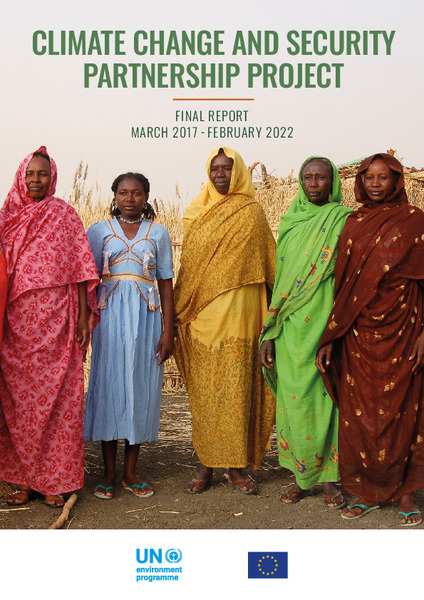| dc.description | The linkages between climate change, peace and security have gained growing recognition in recent years. As climate change accelerates, its impacts risk exacerbating existing social, economic, and environmental drivers of insecurity at local levels (where communities struggle to cope with converging pressures) and internationally (when resources and ecosystems are shared across national borders). At the same time, insecurity hinders climate change adaptation efforts, and risks leaving already vulnerable communities even poorer and less resilient to interlinked climate and security crises. The European Union (EU) and the UN Environment Programme (UNEP) established a partnership on climate change and security in 2017, with the aim of collaborating to strengthen the capacity of countries and international partners to identify environment and climate-related security risks at global, national and community levels, and to programme suitable risk reduction and response measures. The resulting five-year project was among the first of its kind to integrate climate change adaptation and peacebuilding objectives into analysis, planning and resilience-building initiatives in conflict-affected contexts. The project also made important contributions towards strengthening the capacity of key actors at international and field levels to identify and address climate-related security risks. As the EU and UN scale up global action to build resilience to climate-security challenges, the results and lessons learned from this project provide guidance, practical tools and concrete examples to support future planning and increased programming in different regions of the world. | en_US |


